Governance and Civics Worksheets for Ages 3-5
6 filtered results
-
From - To
Discover engaging and educational Governance and Civics Worksheets designed for ages 3-5 at Kids Academy! Our activities introduce young learners to key social studies concepts, promoting an understanding of community, rules, and citizenship. Through fun illustrations and simple exercises, children explore the basics of our government and civic responsibilities. These worksheets help develop foundational skills, such as critical thinking and problem-solving, while fostering respect for rules and an appreciation for cooperation. Perfect for preschoolers and kindergarteners, our printable resources make learning about governance and civics interactive and enjoyable. Visit Kids Academy to ignite your child's curiosity and knowledge!
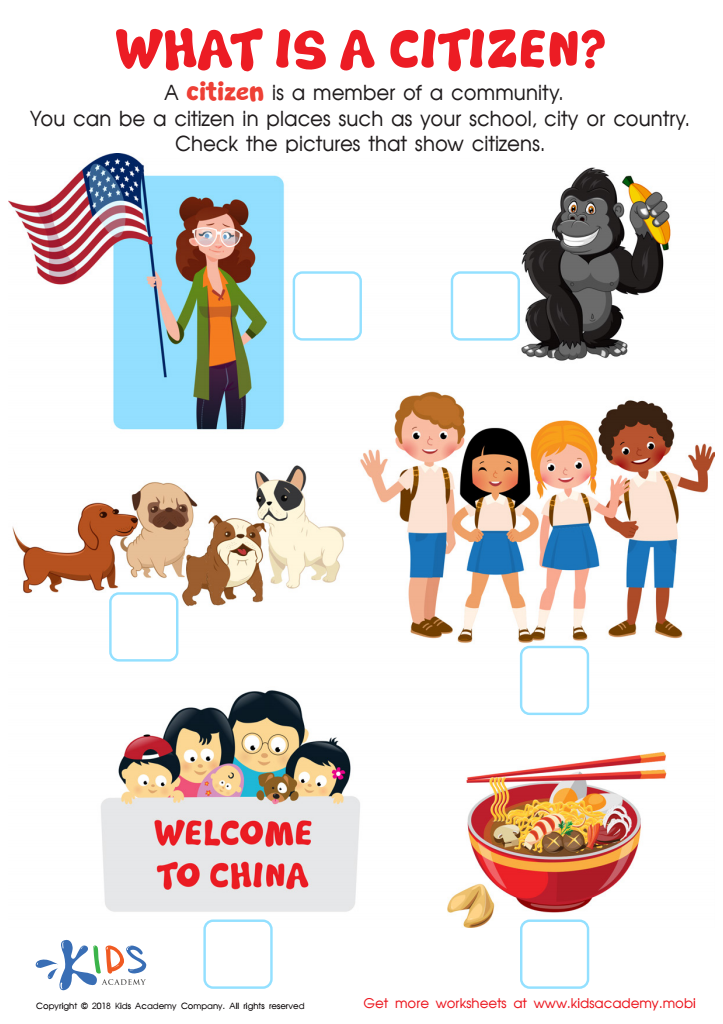

What is a Citizen? Worksheet
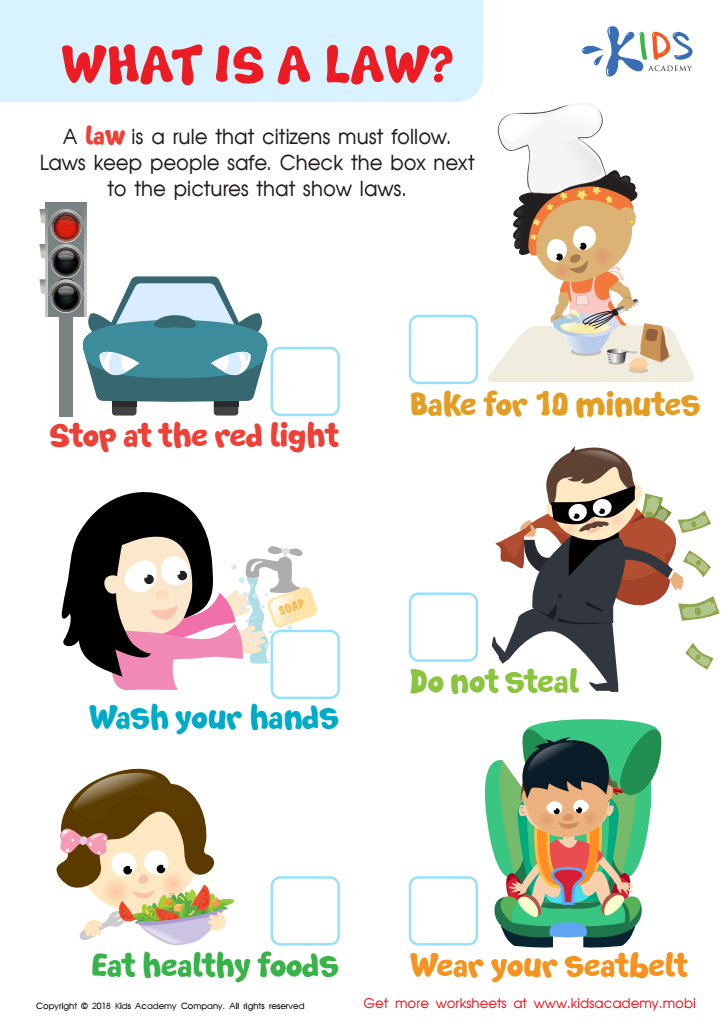

What is a Law? Worksheet
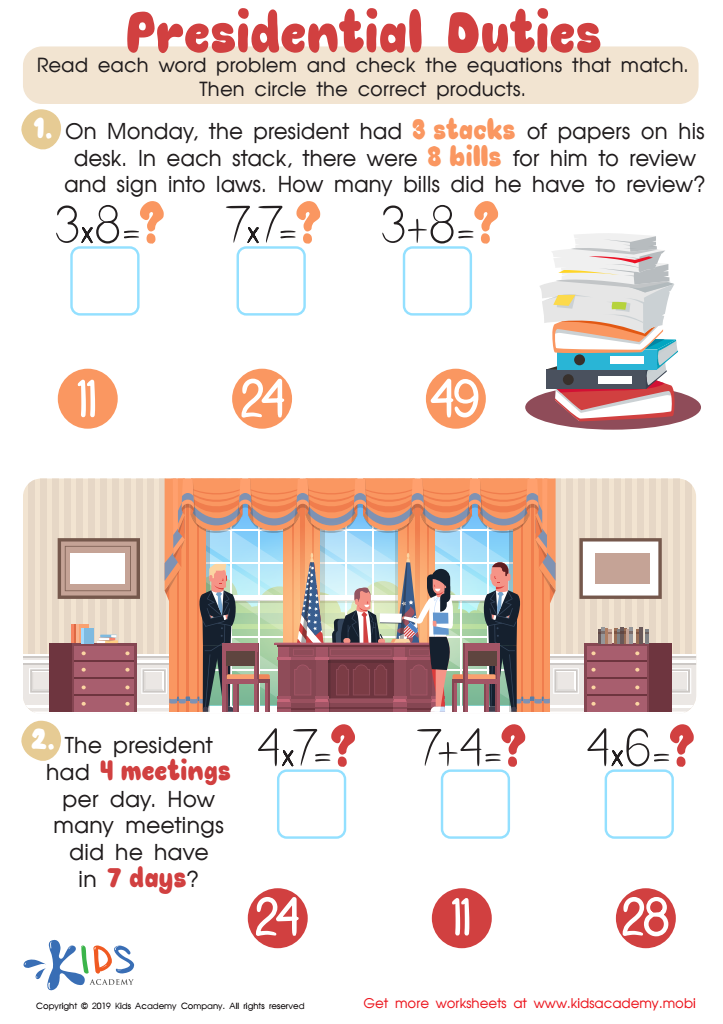

Presidential Duties Worksheet
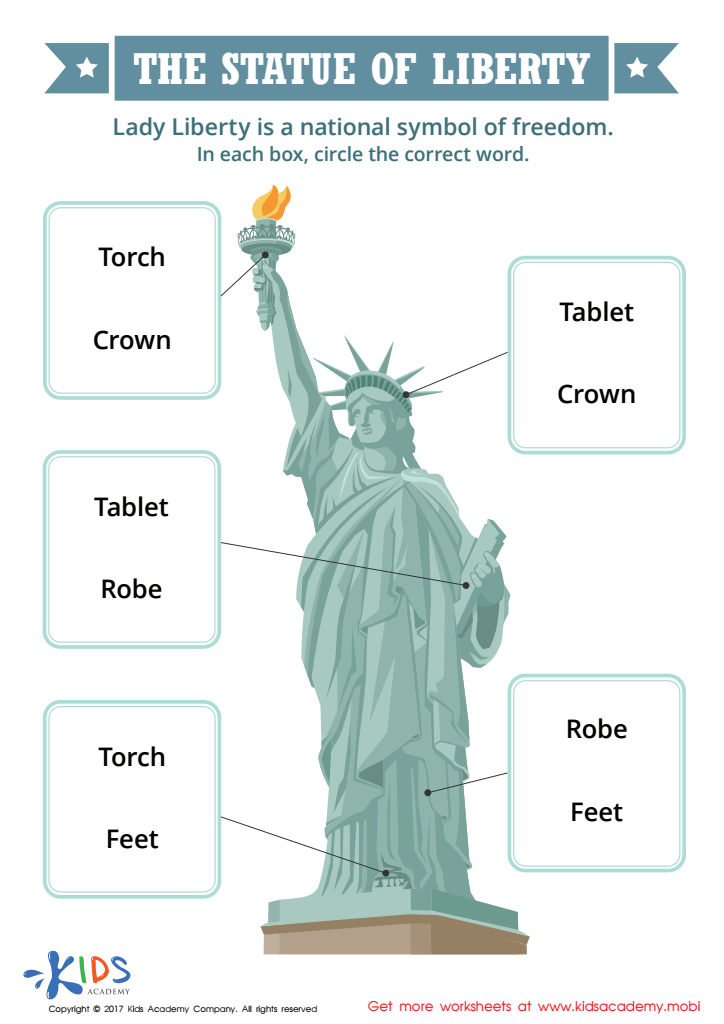

The Statue of Liberty Printable
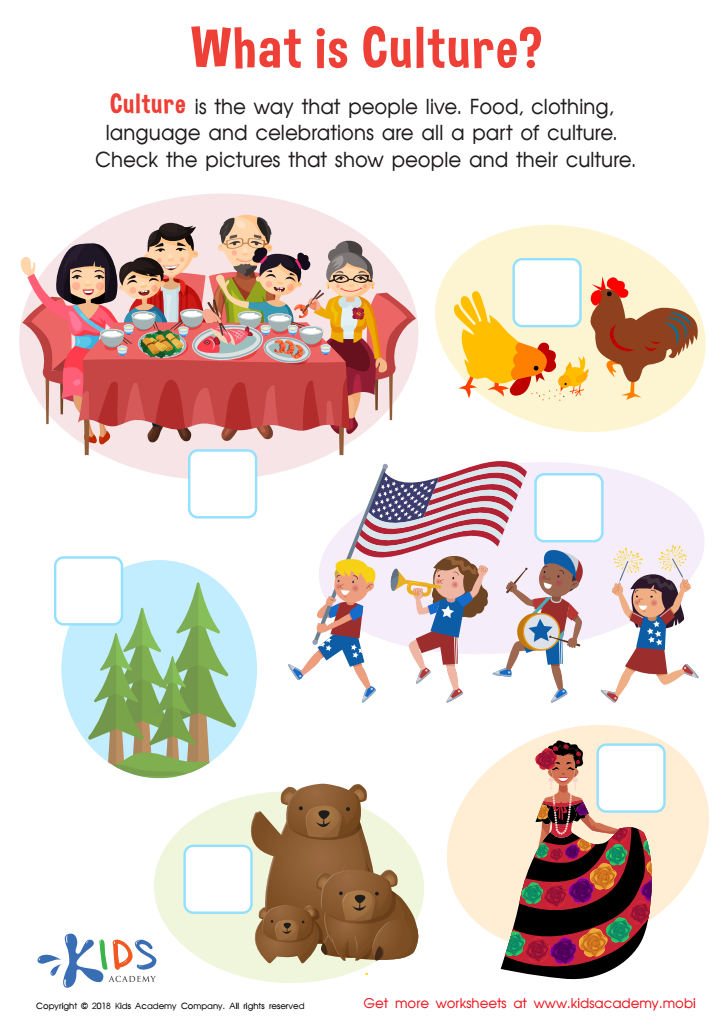

What Is Culture? Worksheet
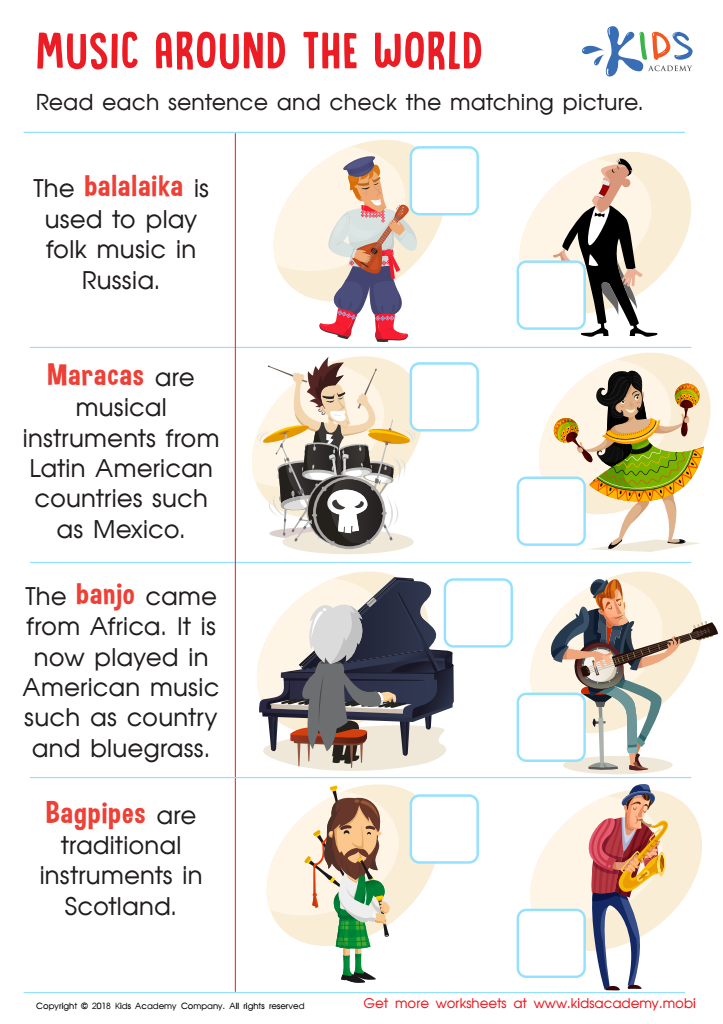

Music Around the World Worksheet
Parents and teachers play a crucial role in fostering early childhood development, which includes an introduction to governance and civics for children ages 3-5. At this foundational stage, children are like sponges, eager to absorb new knowledge and ideas. Incorporating basic principles of governance and civics helps to lay a strong groundwork for responsible and informed citizenship later in life.
By introducing concepts like rules, authority, fairness, and participation, children start learning about how societies are structured and how they function. Teaching these ideas early helps kids understand the importance of cooperation, respect for others, and the role they play within their communities. This can be as simple as creating classroom rules together or learning about community helpers like firefighters and police officers.
Moreover, governance and civics education can strengthen critical social-emotional skills. When kids learn about fairness and justice, they develop empathy and the ability to see things from different perspectives. It encourages them to think about others' needs and to appreciate diversity.
Ultimately, early exposure provides a basis for more complex civic understanding as children grow. It fosters well-rounded individuals who are likely to respect democratic values, engage in community service, and develop into proactive, informed adults. Investing time in these teachings early on results in a generation better prepared to lead and make positive changes in society.

 Assign to the classroom
Assign to the classroom






